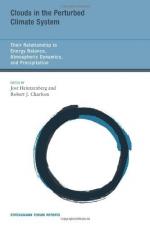|
This section contains 668 words (approx. 3 pages at 300 words per page) |

|
Precipitation is a process that causes dissolved substances to separate from a solution as a solid. The resulting solid is referred to as a precipitate. In terms of physical processes, precipitation is the opposite of dissolution. Precipitation also describes a different process that takes place in the atmosphere, the condensation of water vapor to form rain droplets, snow or hail.
In chemical reactions ionic compounds that dissociate (break apart) in solution are termed ionic salts. Any resulting dissociated components (e.g., ions) that do not contribute to the formation of the precipitate are termed spectators (e.g., spectator ions). The components that react to form the precipitate are termed the precipitate's constituent or contributing components.
Whether a precipitate will form depends on both the solute concentration and its saturation solubility at the specified temperature, that is, the maximum amount of a substance that can be dissolved in the...
|
This section contains 668 words (approx. 3 pages at 300 words per page) |

|


